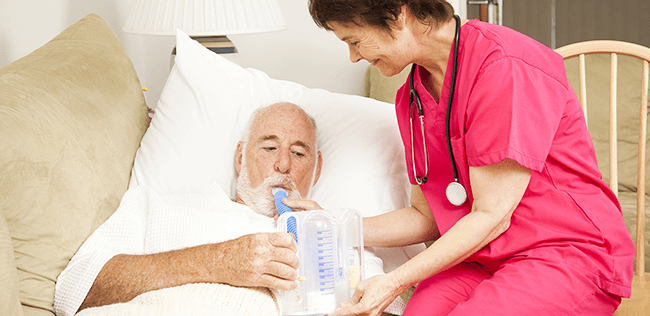One of the recent explorations in the area of CHF is the impact of specific inspiratory muscle training. Research on specific inspiratory muscle training (IMT) has been conducted in order to test for its ability to improve inspiratory muscle performance, lung function, dyspnea, and exercise capacity in patients with CHF. Let’s look at the study below in further detail.
Key Findings
- Respiratory muscle weakness contributes to exercise intolerance and dyspnea in people with congestive heart failure (CHF).
- 12 weeks of RMT improved respiratory muscle strength and endurance, dyspnea, and exercise capacity in CHF patients.
Patient Impact
RMT effectively improves respiratory strength and endurance, exercise capacity and dyspnea in CHF patients.
Study Methods
The impact of IMT on CHF patients was assessed over a period of three months. More specifically, spirometry, inspiratory muscle strength and endurance and exercise capacity were assessed in CHF patients before and after three months of IMT. This group was also compared to a control group.
Study Results
IMT significantly increased inspiratory muscle strength, measured by maximal inspiratory pressure (PImax), and endurance, and improved exercise capacity, measured by distance covered in the six minute walking test. IMT also significantly reduced dyspnea in CHF patients.
In conclusion, this study provides proof of the concept that increased inspiratory muscle strength and endurance due to IMT leads to increased exercise performance in patients with CHF. IMT is therefore recommended as complementary therapy in patients with CHF.

0 Comments